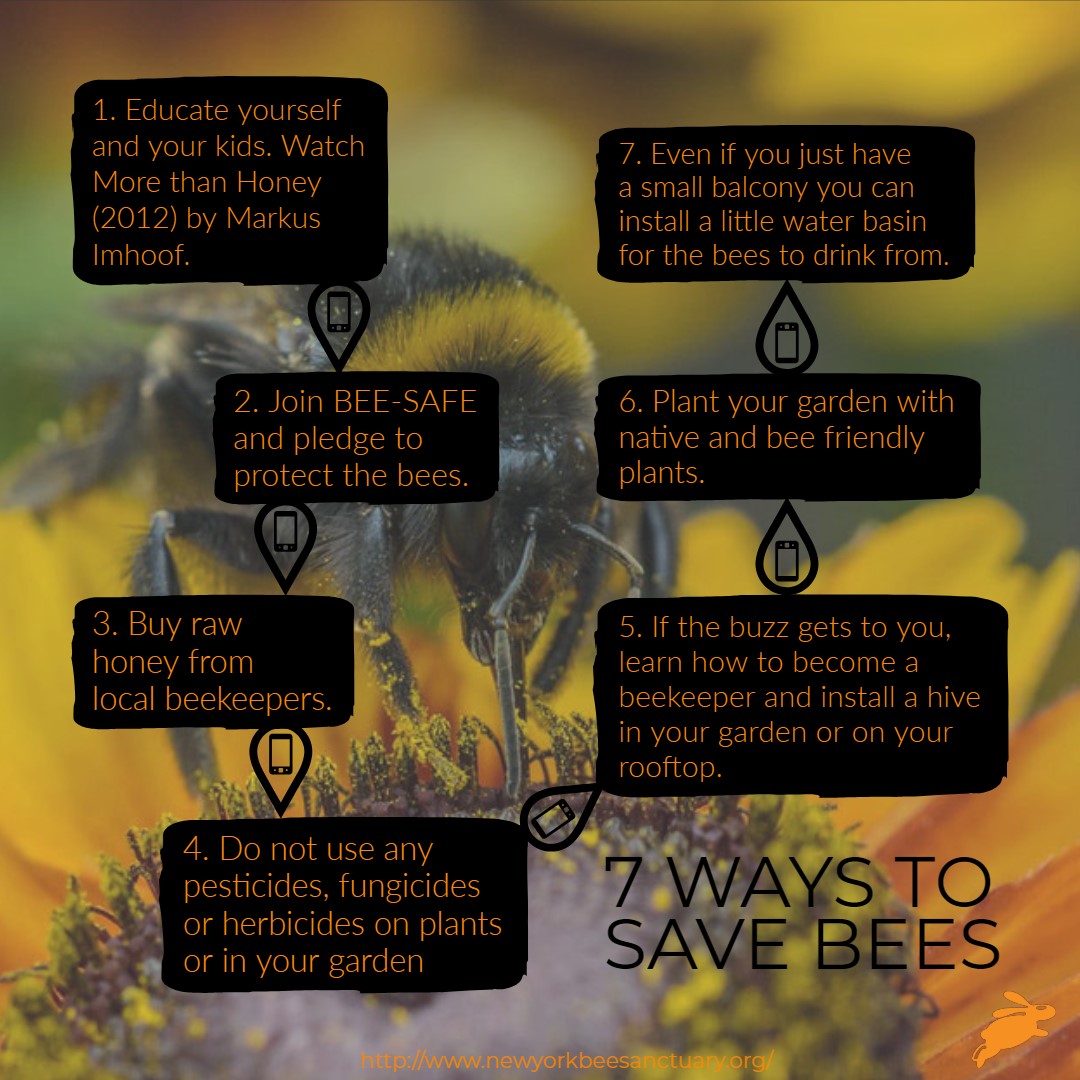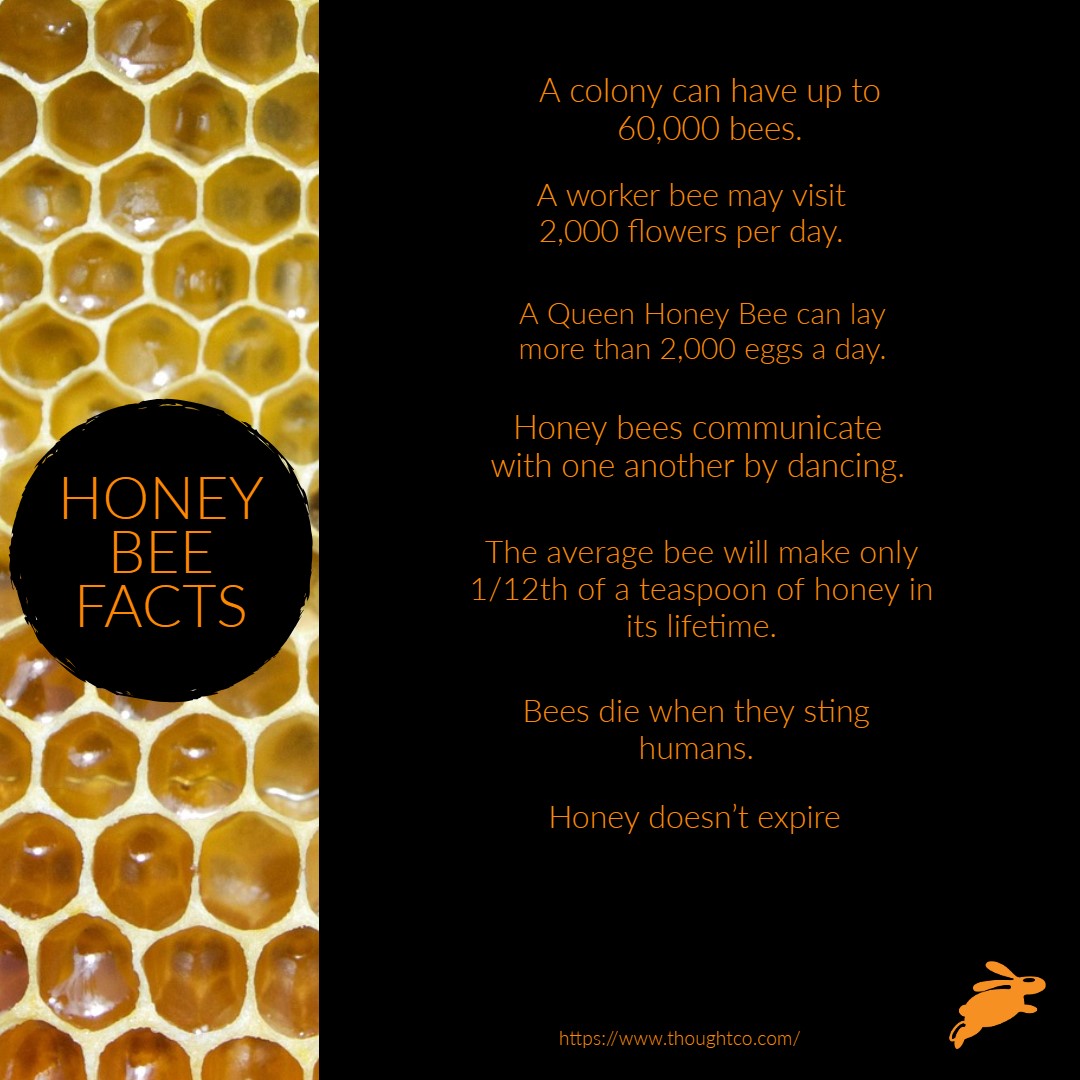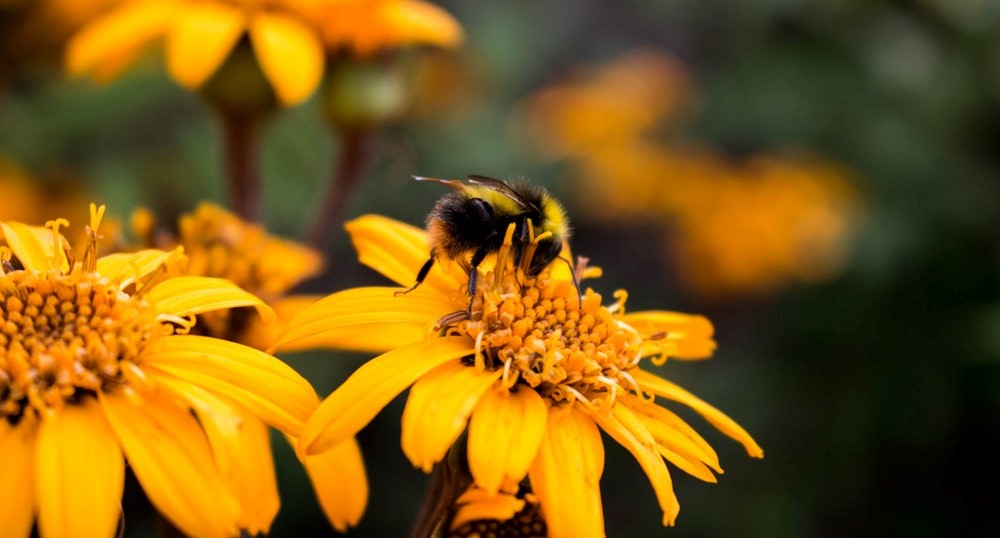It’s Sweetember! This month we celebrate National Honey Month and pay special tribute to our flying farmers. We know they sometimes buzz a little too loud, steal our soda and force us to go into flight mode, but they’re actually pretty damn special and vital for our survival.
Why bees are VIPs (Very Important Pollinators)
Bees have the important job of making sure that our summer crops grow and flourish into delightful fruits and veggies. Without the buzzing beauties our plates won’t be filled with healthy nourishments.
Bees transfer pollen from the male part of the flower (the anther) to the female part (the stigma). As bees move from flower to flower in search of nectar, they leave behind grains of pollen on the sticky surface, allowing plants to grow and produce food.
The honey kings pollinate billions of plants every year, including millions of agricultural crops. In fact, bees play a key role in one of every third bite of food we eat. Without them, not only would humans starve to death, but also animals which depend on plants for survival.
3 Bee-killers (excluding you)
If you squash a bee with your flipflop or destroy a hive, you’re contributing directly to a future food shortage (and killing a panda*).
*Maybe…
Other bee-killers include the following:
- Crazy Pesticides
A pesticide is a chemical similar to nicotine. The chemical is toxic to bees and causes confusion. The bees go insane and can’t find their way back to the hive due to the toxic chemical. It’s almost like they are given a form of Alzheimer’s. WTF?
- Deadly Parasites
Honey bees are dying from parasites like the Varroa mite. These tiny red-brown parasites mainly feed and reproduce on larvae and pupae in the developing brood, causing malformation and numerous viruses. Some bees completely lose their wings and legs. The poor flying farmers eventually die from the lethal parasite.
- Climate change
Climate change is causing habitat loss as bees fail to migrate to cooler areas to build new hives. As temperatures continue to rise, flowers bloom earlier in the spring, creating a potential problem with the production of pollen and when bees are ready to feed on that pollen.
How to save a bee?
Some things we can’t control, but we can educate ourselves and make a few changes to help our buzzing buds.

Okay, so now you know how you can save our black and yellow buds. You can make a difference!
Here are some sweet facts about bees:

We BEElieve that together we can save our honey bees from going completely extinct. Next time a bee annoys you and you want to squash it with the sole of your shoe, think of their farming skills.



